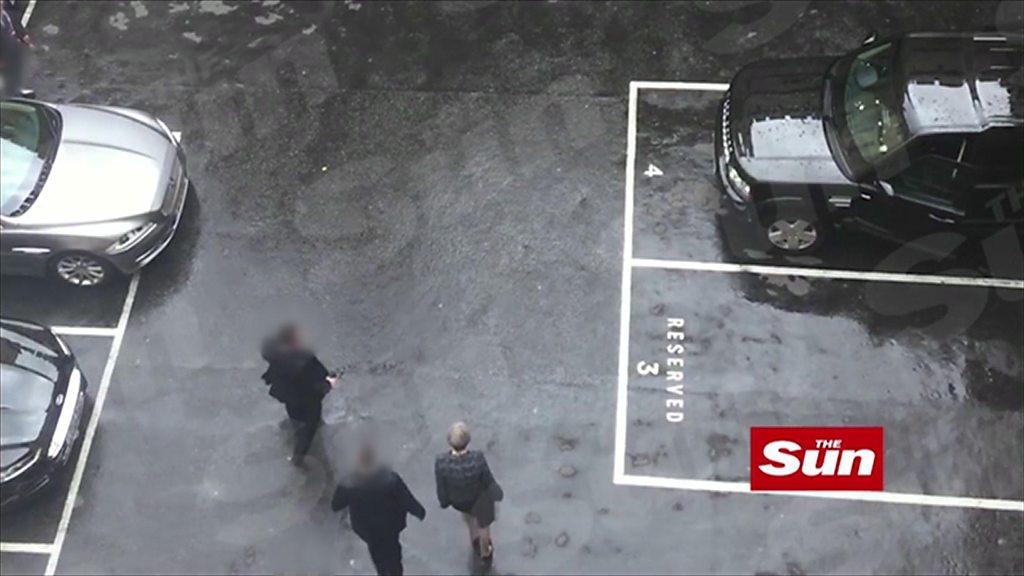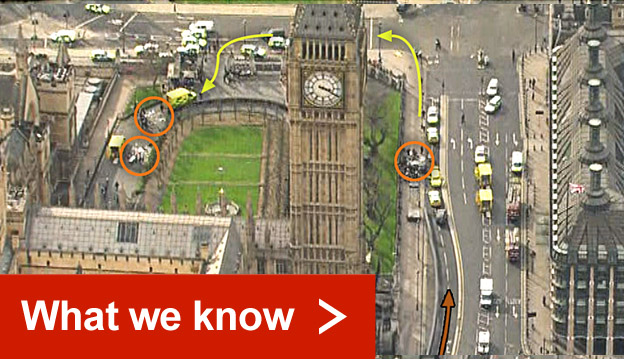London attack: Parliament security under review
- Published
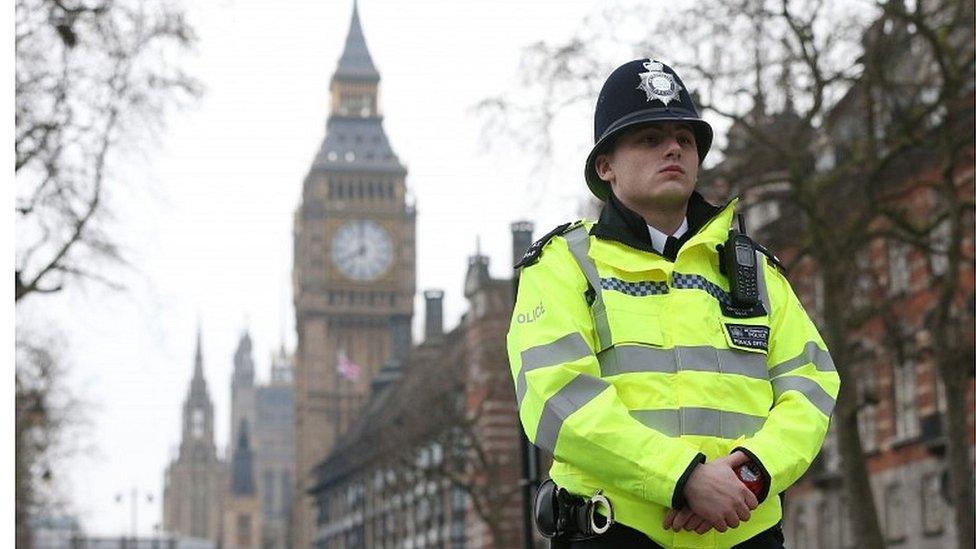
Questions continue to be asked about whether Wednesday's fatal terror attack in Parliament could have been prevented if more officers had been armed.
Attention is focusing on how Khalid Masood was able to enter the Carriage Gates entrance of Parliament before he was confronted and subsequently shot.
One security expert said the breach may have been a product of complacency.
Ministers insist the police did their job and Parliament can't be sealed off - and a security review is under way.
A Parliamentary spokesman said security was always under "constant review" but the building had to remain "open and accessible" for it to function.
The review follows the fatal stabbing of PC Keith Palmer in the grounds of the Palace of Westminster.
Ministers have declined to comment on unconfirmed reports that his alleged assailant was shot dead by a member of Defence Secretary Sir Michael Fallon's close protection team, who happened to be at the scene, rather than a uniformed officer stationed at the gate.
Some MPs regard the carriage gates entrance, which is used by government cars to drop off and pick up ministers, as a weak point in the security perimeter.
Former attorney general Dominic Grieve tells Today arming police officers isn't 'a solution'
It is manned by two police officers but they are not always armed and the gate is often open, unlike other entrances to the Palace of Westminster.
The Times reported that a 2005 review had found the entrance to be a weak point, primarily due to the number of delivery vans using it.
The paper quoted parliamentary sources as saying any changes at the time had been regarded as "too cumbersome".
'Not intrusive'
The Met Police said the current security arrangements had been in place for many years and were "designed to provide access to the seat of our government balanced carefully with security that is proportionate but not overly intrusive".
"Of course, after an incident like this, as would be expected, my team will work with parliamentary authorities to assess whether a different tone or a different balance is necessary," Assistant Deputy Commissioner Mark Rowley said on Friday.
Parliament, which oversees its own security, said the arrangements should reflect the level of risk it faced.
"As is good practice following any significant incident, the Houses in conjunction with the police and other bodies will also be carrying out a review of security around this specific incident," a spokesman said.
Former Northern Ireland Secretary Theresa Villiers has said there is now a case for all police officers guarding Parliament and other "sensitive sites" to be routinely armed.

How Parliament is policed: By the BBC's Jack Evans
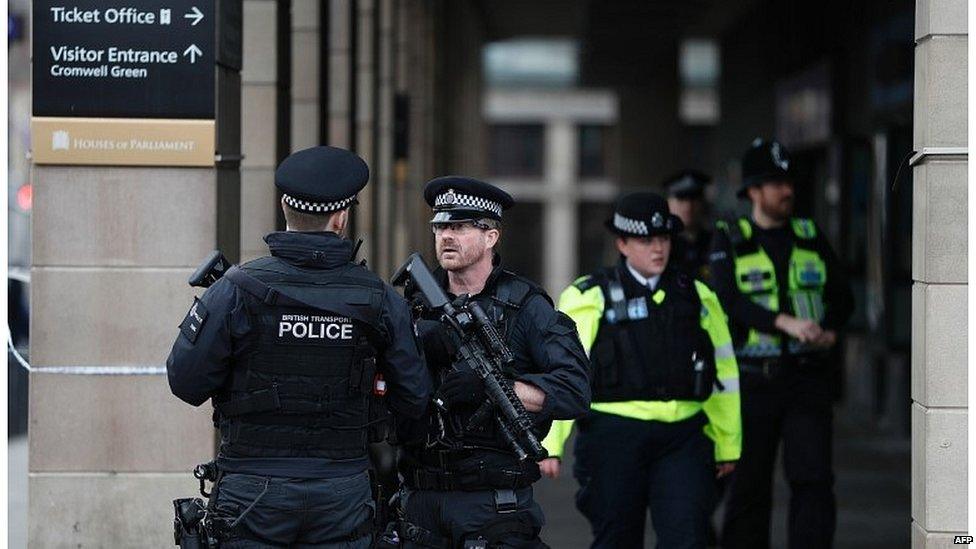
There are two Metropolitan Police officers manning Carriage Gates at all times.
Behind the gates there is a hut staffed by a third officer, whose job is to monitor pedestrians exiting the estate.
All three officers are issued with stab vests.
They check to ensure the driver of a vehicle or bicycle has the correct parliamentary pass. Cars are security vetted beyond the gates. They all have two way radios so can call for help in emergencies.
Armed police are on patrol throughout the Parliamentary estate at all times but they are more visible at times of heightened security.

Security expert Professor Anthony Glees said the attack had demonstrated a "lack of protection" within Parliament.
"I am very disturbed by the complacent attitude," Prof Glees, who heads the Centre for Security and Intelligence Studies programme at the University of Buckingham told the BBC's Victoria Derbyshire programme.
"The fact is in immediate terms and wider terms, this was a failure of security policy.
"This is someone who got within 100 metres of where the prime minister was. If he had an explosive vest, we would be having a very different conversation."
'No panacea'
Tony Long, a former armed police officer, said those stationed at College Gates were effectively "meeters and greeters and pass checkers" who were well known to MPs.
He told Victoria Derbyshire there had been a huge reluctance within Parliament, which oversees its own security, to have armed officers on patrol.
"There is a huge amount of tradition about that building," he said.
Moment PM evacuated from Westminster
"I guarantee if those gates were shut, the first person to complain about it would be an MP or a cabinet minister."
Several MPs have warned Westminster should not be turned into a fortress.
"The idea that arming all police will be a panacea and a solution to this problem may well be mistaken," said Conservative MP Dominic Grieve.
"It is worth bearing in mind that in fact security wasn't breached. There was a tragic loss of life but in trying to breach security, he was stopped."
Kim Howells, a former chair of the Intelligence and Security Committee, said one must remember Parliament is a "working building with people moving in and out".
Asked why Masood had not been stopped from entering the parliamentary estate, he said: "This guy ran in through the gates. As a former rugby man, I know it is not easy to bring down a man in such a situation."
There was a major review of security at the Palace of Westminster in 2014 which was supposed to "assess the strengths and weaknesses of the current arrangements and to make recommendations". Its findings have not been published.
- Published24 March 2017
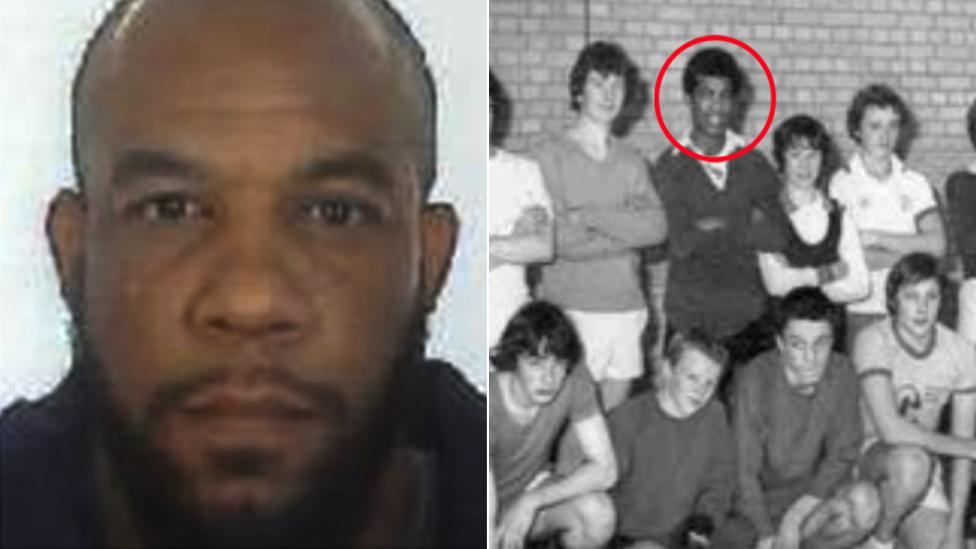
- Published24 March 2017
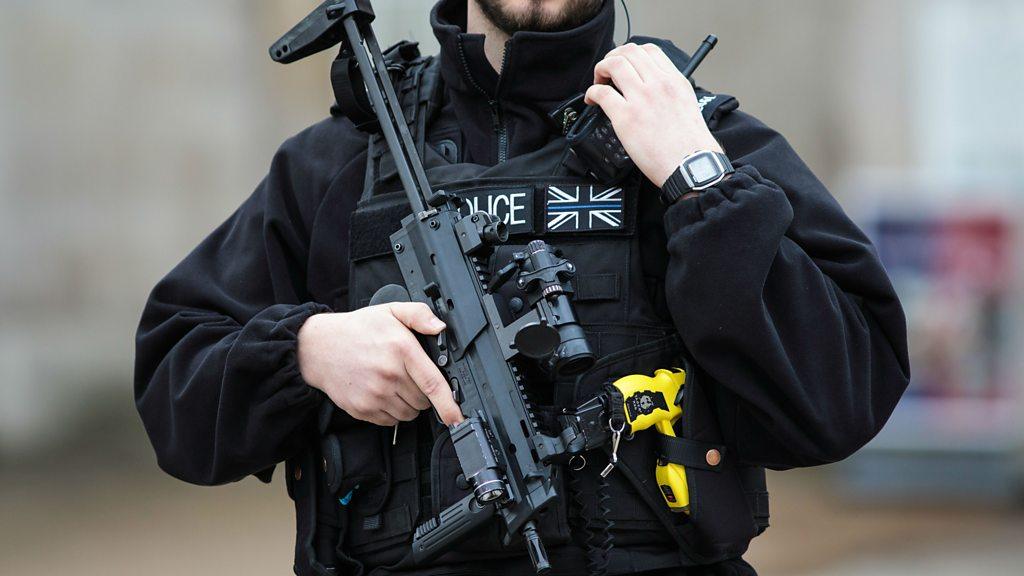
- Published23 March 2017
